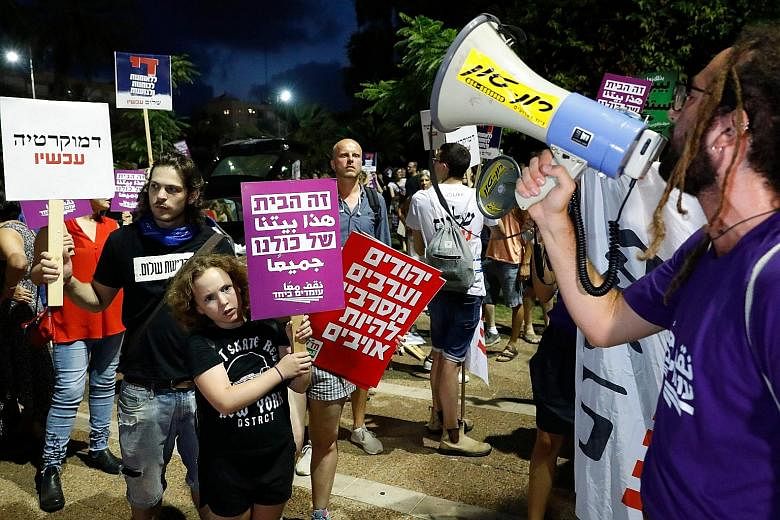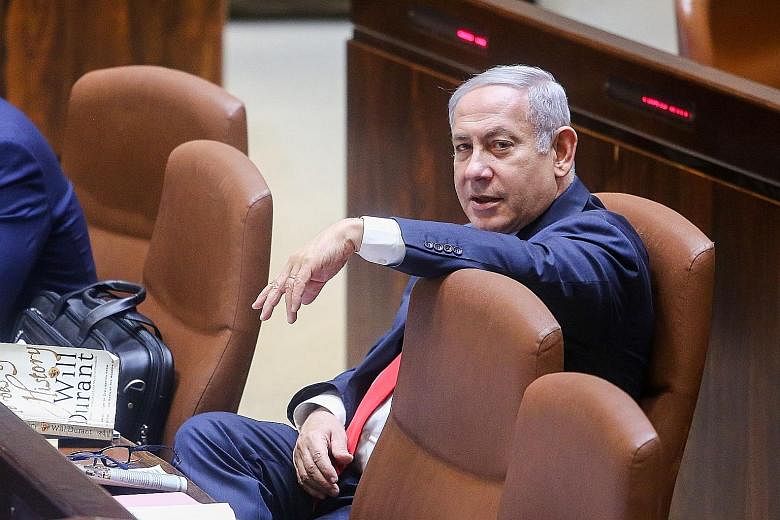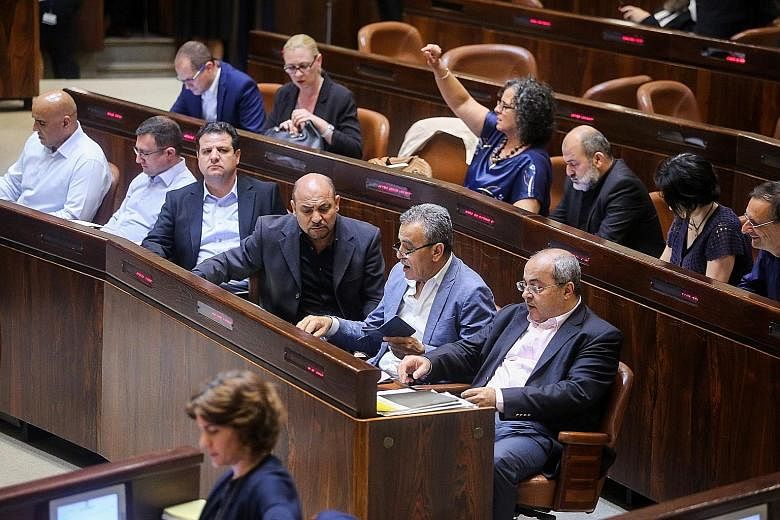Just before its summer recess, the Knesset passed a series of laws that have alarmed many Israelis, including some in Prime Minister Benjamin Netanyahu's own party.
President Reuven Rivlin warned against this a week ago. In a letter to the Knesset, he urged Israel's parliamentarians to reject a constitutional Bill aimed at codifying the Jewish character of the state.
The project could "harm the Jewish people, Jews around the world and the state of Israel", he wrote.
Despite this extraordinary intervention, the Bill was passed yesterday with a slim majority of 62 to 55 votes. It was but one of dozens of laws pushed through in marathon sessions.
The legislative frenzy showed how Mr Netanyahu has become dependent on extreme elements in his coalition. Nationalists and ultra-orthodox parties have forced him to pass controversial laws, enraging large parts of the population and deepening divisions with the Jewish diaspora.
The new national state law wants to remedy an old problem. Israel's declaration of independence from 1948 established a "Jewish state". The founders promised that within three months, a Constitution should define that term. But such a Constitution has still not been written.
The reason for this is profound differences among different sectors of the population over what "Jewish state" is supposed to mean. Ultra-orthodox Jews want the state to abide by Jewish law. Settlers see it as a tool to "liberate" the entire biblical land. Secular Israelis regard their Judaism as ethnicity or culture, and want to be free of religious coercion.
Then there are Israel's non-Jewish citizens - about 20 per cent of its 8.8 million inhabitants are Muslim Arabs, whose role in the Jewish state remains an open question.
So instead of filing a Constitution, the Knesset issued 13 basic laws anchoring the democratic system of government and some civil rights. The ruling coalition argued that another fundamental law was needed to safeguard the state's Jewish character. But critics claim that this law turns Israel into an apartheid state.
Most paragraphs of the law are hardly offensive. They ordain the use of the Jewish calendar, declare national holidays and determine the symbols of the state, all of which have long been valid.
But other sections have been attacked even by prominent politicians of Mr Netanyahu's own Likud party, including Mr Rivlin and Mr Benjamin Begin, son of the late prime minister Menachem Begin. The legal counsel of the Knesset opined that the law was illegal. Jewish groups in the United States warned that it would lead to a permanent break with the diaspora.
The issue mainly revolves around two paragraphs, one of which downgrades Arabic - hitherto one of the two official languages alongside Hebrew - to a "special status" language. In contrast, Hebrew is made the national language. A second controversial paragraph deems the establishment of Jewish communities as being in the national interest. This reinforces a long-held perception that the government wishes to sideline the Arab minority.
"The words equality and justice are missing in this law," Mr Benjamin Begin complained. Other party members criticised the "insulting humiliation of the Arabic language".
The influential American Jewish Committee said it was "deeply disappointed" with the new law that "put at risk the commitment of Israel's founders to build a country that is both Jewish and democratic".
Observers fear tensions between Jews and Arabs could escalate.



